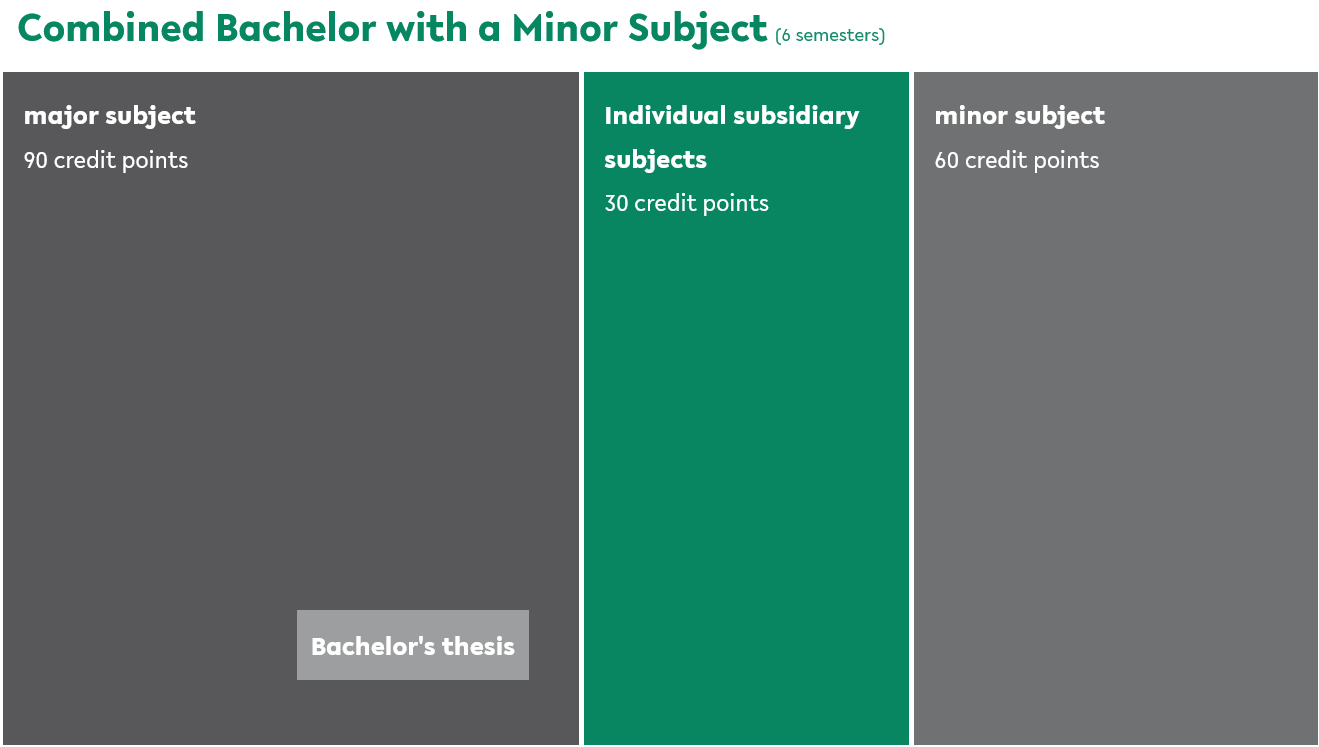Latin: Roman Literature, Culture and Society in European Context Minor Subject (Academic), 60 CPs
FsB vom 01.12.2011 mit Änderung vom 17.12.2024
Overview
Das Studium vermittelt den Studierenden ein strukturiertes Fachwissen zu den grundlegenden Gebieten der Lateinischen Philologie sowie eine fundierte Sprachkompetenz (passiv und aktiv) ebenso wie die einschlägigen fachwissenschaftlichen Erkenntnis- und Arbeitsmethoden. Die Studierenden sollen ein reflektiertes Orientierungs- und ein reflektiert-vertieftes Spezialwissen zu den zentralen Bereichen der lateinisch-römischen Sprache, Literatur, Kultur und Gesellschaft sowie Geistesgeschichte in ihren jeweiligen Kontexten sowie in ihrer Bedeutung für den europäischen Kulturraum erwerben. Die fach-wissenschaftlichen Kenntnisse und Kompetenzen können entweder um den Bereich Antike und Europa oder um eine exemplarisch-vertiefte Beschäftigung mit der lateinischsprachigen Literatur der Spätantike, des Mittelalters bzw. des Renaissance-Humanismus erweitert werden. Das Studium soll die Studierenden zu einem reflektierten Verständnis Europas und seiner Geistesgeschichte befähigen.
The courses
You will find the programme of lectures for this course in the eKVV.
An overview of the introductory and information events is provided by the central student counselling services.
Formalities / Important information
Course start
Studies can be commenced in both winter and summer semesters. Courses are targeted to commencing studies in winter semester. Student counselling to plan the course of studies is recommended.
Length and scope of studies
The standard period of studies is 6 semesters. Information on studying part time can be found on the following webpage.
The studies Minor Subject (Academic), 60 CPs Latin: Roman Literature, Culture and Society in European Context comprise 60 credit points.
Find out about the academic structure model and note the possible combinations as well as the rules regarding the individual supplementary area.
Access requirements
Access to the Bachelor programme is granted to those who have a university entrance qualification suitable for Germany (e. g. German ‘Abitur’).
Please note that further approval requirements also apply for this subject:
Prerequisite for enrolment is proof of linguistic aptitude, which serves to determine whether an applicant has the competence in the Latin language to achieve the study objective (aptitude assessment procedure). The prerequisite for participation in the aptitude assessment procedure is proof of the German “Latinum”. The aptitude assessment takes the form of a written test lasting 90 minutes and, if necessary, a supplementary 20-30 minute oral examination.
Further information on the procedure and dates (in German)
Please also read the subject-specific regulations, which are decisive for all applicable regulations.
Special conditions apply to applicants with a foreign certificate of education.
Likewise, special conditions apply to those qualified in vocational education and training.
Application, admission and enrolment 1
The study places are not subject to any admission restrictions (numerus clausus). Nevertheless, you need to apply within the currently applicable application deadlines. Afterwards, however, you can submit your application for enrolment directly in the application and status portal, provided that you meet the access requirements.
Step by step to a bachelor programme without NC
To the application portal
Special conditions apply to applicants with a foreign certificate of education.
Likewise, special conditions apply to those qualified in vocational education and training.
Possible Combinations
This subject can be combined with the following subjects in the Combined Bachelor's Degree:

Further links
Internet pages of the subject Latin: Roman Literature, Culture and Society in European Context
Internet pages of the responsible institution(s):
Faculty of Linguistics and Literary Studies with the courses offered
Legend
- 1
-
The information on admission restrictions / numerus clausus (NC) refers to applications for the winter semester 2025/26 and summer semester 2026.
Information on NC values from previous years - academic
- "technical" degree programme; no option for teaching profession available here.


 The courses
The courses
 Course start
Course start
 Length and scope of studies
Length and scope of studies
 Access requirements
Access requirements
 Application, admission and enrolment
Application, admission and enrolment
 Possible Combinations
Possible Combinations
 Further links
Further links